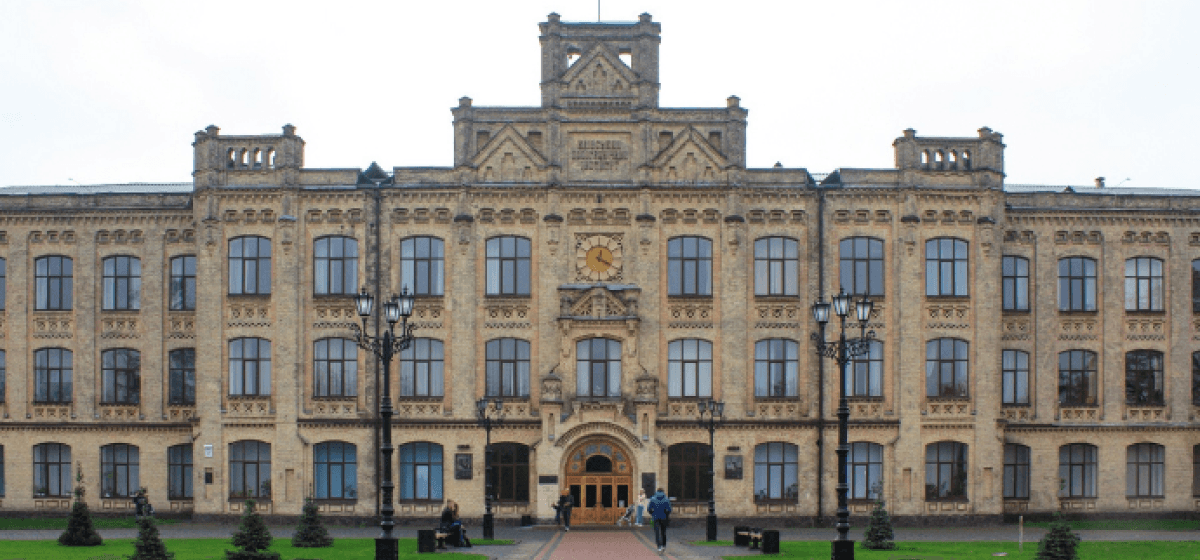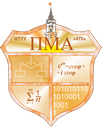- Admission
- How to choose a university in the field of IT
How to choose a university and specialty in IT
If you are someone with a technical mindset or aptitude, you might be interested in the thoughts on how to make a rational choice of university and field of study, presented to you by the Applied Mathematics Department of the Ukrainian leading technical university.

So, we present to you an algorithm for choosing a university and a specialisation in the fields of IT, programming, or related areas, from the Applied Mathematics Department at the Igor Sikorsky Kyiv Polytechnic Institute.
For a bachelor's degree, it is undoubtedly better to study in Ukraine, as the transition from school life to university life can be stressful: different relationships with those around you, a new level of responsibility, greater workload, and so on. It’s easier to cope with such stress in a more familiar environment (native language of communication, a similar mindset among peers, familiar daily life, and financial support from parents).
When choosing to pursue a master's degree, however, different factors come into play, and they should be considered on an individual basis.
The clear answer is Kyiv. Education is not just about acquiring knowledge and skills, but also about making valuable connections and finding work while studying. Academic education must always be complemented by initial work experience in the field, and the capital offers the best opportunities for this.
If there is a family tradition you wish to follow, it makes sense to choose a specialized educational institution. However, in general, it is better to study at a comprehensive university, where more general models and situations are explored. This way, you will always have the opportunity to move from the general to the more specific and specialized. The reverse transition is always more difficult.
At the moment, there are only two good options — Igor Sikorsky Kyiv Polytechnic Institute (KPI) and Taras Shevchenko National University of Kyiv (KNU). It's enough to simply walk into any Ukrainian IT company and ask where most of its employees studied. Perhaps, someday (for your children or grandchildren :)), the situation will change, but for now, don't listen to the loud advertisers.
Just take a look — the universities are named after prominent figures, and it’s immediately clear which one is closer to a technical profile. :)
Joking aside, feel free to choose either of these universities, and you won’t go wrong. Yes, you’ll be taught by different lecturers, but the overall atmosphere, established traditions, and professional and innovative environment will provide you with all the opportunities to become a true professional. Whether you become one or not, however, will depend primarily on you.
There is one small nuance I’d like to point out, though. At one time, the Educational and Methodical Commission of the Ministry of Education and Science of Ukraine discussed what the completion of a bachelor’s program should look like. Representatives from Taras Shevchenko National University of Kyiv argued that it should end with a state exam, covering questions from 3-4 key subjects the student studied during their bachelor’s program. I, as a representative of Kyiv Polytechnic, insisted that the bachelor’s program should culminate with a thesis project, where the student develops and programs a specific mathematical model and publicly defends it, clearly demonstrating that they’ve become a real engineer.
Both approaches are valid, so choose the one that best suits you.
Applied Mathematics! What other specialties could the Applied Mathematics Department recommend? :)
Now, let’s be very serious, because the choice of your major must be made right when you apply. In the grand scheme of things, there’s no significant difference between Software Engineering, Computer Engineering, Computer Science, Information Technology, Systems Analysis, or Applied Mathematics! There are a number of core mathematical and programming courses common to all these specialties, and there’s also a significant component of independent learning: what you choose to master thoroughly and what you just need to pass for a grade.
How qualified you’ll be after completing your studies primarily depends on the second factor. At a proper university with a good department, you will be helped to become a worthy specialist, but the final level of your qualifications will be shaped by you alone.
And here, we need to consider certain nuances — what additional value will you gain from your university education? Everyone will learn to program, but what will make you stand out from an Indian or Chinese programmer, of whom there are far more than our own, simply due to demographics?
The "Applied Mathematics" major offers a solid mathematical and algorithmic foundation, which can become the basis of your future success in the battle for a decent job. After all, mastering certain mathematical approaches and methods is much harder at a later age than during your student years. As for purely technological aspects (new libraries, frameworks, etc.), you can figure those out later on your own.
The Applied Mathematics Department at the Igor Sikorsky Kyiv Polytechnic Institute has an additional bonus. Our educational programme is called "Machine Learning and Mathematical Modeling". The future of IT lies with Machine Learning professionals, who must combine knowledge of mathematics, programming, and the specific problem domain, whatever it may be.
